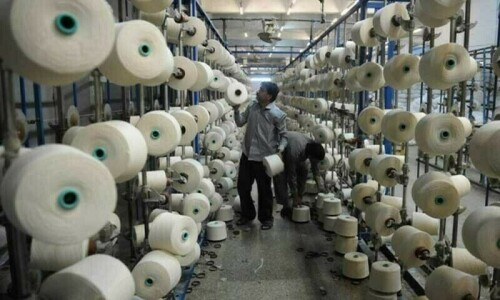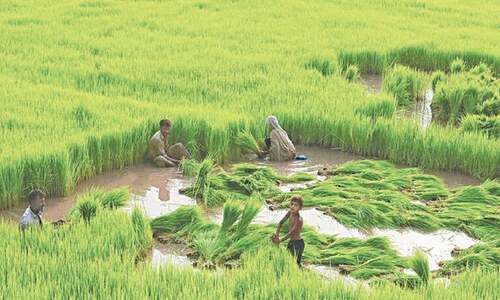BEIRUT: Hezbollah said on Monday that the Israeli military has been incapable of occupying even a single village in Lebanon since launching cross-border ground operations six weeks ago.
Israeli troops on Sept 30 began what the military called “localised and targeted raids” against Hezbollah in Lebanon’s southern border area, a week after escalating air strikes on Hezbollah targets in Lebanon.
“After 45 days of bloody fighting, the enemy is still unable to occupy a single Lebanese village,” Hezbollah spokesman Mohammad Afif told a news conference in south Beirut, a stronghold of the movement and a repeated target of Israeli air raids.
Hezbollah had on Oct 23 issued a similar statement that said Israel’s army “has not been able to fully establish its control or completely occupy any village” in southern Lebanon. Israel has said its aim is to make its northern border safe for the return of tens of thousands of Israelis displaced when Hezbollah more than a year ago began cross-border fire, which it described as support for Hamas in Gaza.
Tel Aviv accused of seeking to create a “no man’s land” on the border
On Nov 3, Israeli Prime Minister Benjamin Netanyahu told troops at the Lebanon border that the operation aimed to push Hezbollah back over the Litani River. He said a second goal was to stop any attempt to rearm and the third was “to respond firmly to any action taken against us”, according to his office.
On Monday Hezbollah spokesman Afif said the group’s fighters had repulsed Israeli troops in Khiam, about six kilometres from the border. He added that the Israelis also failed in attempts “to penetrate on several fronts at Bint Jbeil”, about 17 kilometres southwest of Khiam.
Footage last week showed massive detonations in the village of Mais al-Jabal, between Bint Jbeil and Khiam. Similar aerial scenes have been captured from several border villages since Israel sent in ground troops.
Hezbollah accuses Israel of seeking to create a “no man’s land” on the frontier.
‘Long war’
On Monday, Hezbollah said it launched attacks on Israeli troops inside Lebanese territory as well as on locations and military positions in north Israel.
The targets included military bases near the cities of Safed and Haifa, as well as an area north of Haifa, according to the Lebanese group. Afif denied that Israeli strikes on Lebanon had diminished the group’s missile stock.
He asked how that could be the case “when we targeted the suburbs of Tel Aviv several days ago” and employed for the first time Fateh missiles.
The group announced on Nov 6 that it had begun to use Fateh-110 Iranian-made surface-to-surface guided missiles.
In a March report, the Centre for Strategic and International Studies described Hezbollah as “probably the most heavily armed non-state group in the world”, with an estimated 120,000-200,000 rockets and missiles.
Asked about ceasefire prospects, Afif said that since the election of Donald Trump last week to the United States presidency, there were “contacts between Washington, Moscow, Tehran and other capitals”.
But he said, “according to my information nothing official has reached Hezbollah or the Lebanese state.” Israeli strikes killed Hezbollah chief Hassan Nasrallah and other commanders, but Afif said the group remains “ready for a long war”.
On Monday, Lebanon’s official National News Agency reported a slew of Israeli strikes on the country’s south and struck an area in the east at the Syrian border. The news agency also said Israeli troops “blew up a number of houses on the outskirts of” the border village of Aita al-Shaab.
Published in Dawn, November 12th, 2024












































Dear visitor, the comments section is undergoing an overhaul and will return soon.